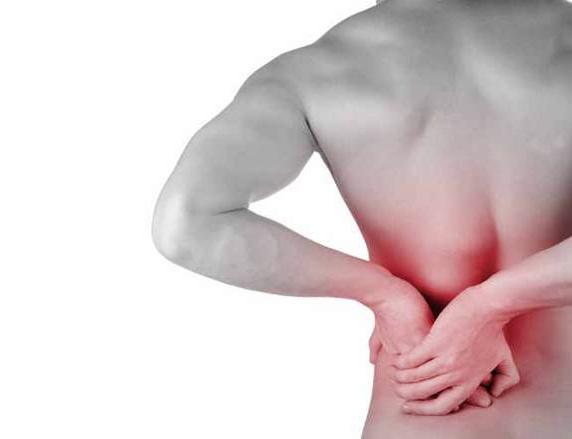SO what of fasting with Exercise? From the reading that I have done, it would seem that these are two very distinct and separate approaches to the fasting question. Usually fasting would be accompanied with a restful period where activity was downgraded in order to maximise the benefits of reduced caloric intake and to allow the 'cleansing' or 'detoxing' period to occur without the need for cellular regeneration.
And then there is Fasting with Athletic Performance? High intensity or highly aerobic exercise is not a good combination with the fasting state, with numerous examples being cited of downgraded performance*. However for those involved with anaerobic exercise, fasting may be an appropriate measure for certain goals, ie lean body mass development and muscular development.^
It should be noted that certain elements make a difference in fasting. Some fast with nil by mouth, othes permit liquid form of ingestion. Juice fasts and tea fasts are very popular in the current daily intake. Dehydration from restricted fluid intake has a lot to do with decreased ability to perform, not as much the restriction of protein, which is a major argument for fasting with training. Branch Chain Amino Acids (BCAA's) are well documented to maximise protein synthesis and generally most sources agree that they should be used pre and post workout for anaerobic training and maximising the benefits of muscular development.
So what of supplemental proteins and substances to maintain nutrient? Protein powders, meal replacement shakes - this is a multi million dollar industry that often influences the dissemination of information and how 'relevent' it may be to individuals who are at various levels of the fitness scale.
In my reading for this article I came across a lot of debate around restricting intake and most commonly, '16 hour fasting'. Its such a tricky debate with meal skipping and fasting being promoted over the traditional 3,5 or even 6 meals a day plan. Metabolic rates, lipid storage, fluid retention, circadian rhythms are all terms that are bandied about to maximise the supposed uptake of nutrition and avoid the all important deposit of fat on the body.
One of the big elements in this process is insulin sensitivity - the body's response to blood glucose levels and glycogen stores within the muscles. Too much insulin = decreased blood sugar which has direct associations with obesity and storage of excess glucose. (ie fat).
Insulin sensitivity is increased after glycogen depletion - i.e after sleep or prolonged restricting of ingestion. The same is true after weight training where the glycogen in muscle stores is depleted. However, regular vigorous glycogen-depleting exercise produces even greater improvements in carbohydrate tolerance and insulin sensitivity.* Vigorous exercise also has the added bonus of making you fitter and decreases bodyfat composition, which asides from the physical aptitiude of fitness, also has a role to play in regulating things like cortisol, insulin responses, metabolic rate and any other amount of physical processes which are all the 'key words' when trying to maximise dietary intake and physical output. Lean individuals do not have the same circadian rhythms and systemic responses to obese or 'average' individuals. Thus fasting for certain individuals is going to have various benefits amongst individuals whilst for others, the Intermittent Fasting process may be more harmful than beneficial.
In this matter we must consider the REASON for fasting. If it is to maintain a lean muscular frame or appearance, then there are certain factors to be taken into effect. Fluid retention and intake, types of physical training undertaken, time of training throughout the day. Let me just say, Fasting for a leaner stomach is not, in my opinion, a paramount reason to adopt this time-honoured practice.
For those of us with a general interest to maintain a fit, healthy physical person you have to question to what extent you are wanting to adopt an eating program that maximises the lean muscle gain promoted by some fitness experts. In regards to this promotion of fasting for the physical 'appearance' i offer this quote "Cortisol is elevated during exercise, which helps us mobilize fats, increase performance and experience euphoria after exercise". In other words - just get out there and exercise.
Its a pandora's box! To fast, to not fast, to promote or to schedule. I have to say that I love my food. After years of training and pushing myself physically, I now promote the doctrine of 'enjoying' my life and if that means having food when I want then I am going to go for it. However, my interest in fasting comes about from my interest in Yogic philosophy and how to best promote an overall health. Chinese Medicine (another philosophy I adhere to) also promotes regular fasting, moreso for the promotion of detoxification and an increase in immune proficiency.
So perhaps in conclusion I might offer that fasting is something of an individual choice. Be clear on the reasons of why you are doing it and also be aware that it is a big impact on your body. The best option is to try and adopt the principles and see how you react. Getting good advice is always paramount and every individual is different. Be sure to take into account ALL that you can and be aware of your own limitations and expectations.
There's so much more reading to be done...
+ Lexa.W.Lee - 2010 FEELGood Tertiary Trial - "Cholesterol Levels After a 24 Hour Fast"
^^ V. D. Longo - Evidence for Programmed Aging
* "Why Intermittent Fasting Isn't All It's Cracked Up To Be" - www.anthonycolpo.com 23/09/10
** Cell Metabolism" Volume 15, Issue 6 - M.Hatori
^ www.leangains.com "Fasted Training Boosts Muscle Growth" M.Berhkan
Reading List:
"Growth Hormone Secretion During Fasting" - Ho, Velduis, Furlanetto, Evans, Albertii and Thorner (Depts of Internal Medicine/Pharmacology, University of Virginia)
"Top Ten Fasting Myths Debunked" - Martin Berkhan, LeanGains.com Oct 2010
"Fasting and Yoga" - John McWhorter
"Why You Should Starve Yourself a Little Each Day" - George Dvorsky, io9.com
"IF Will Help Boost the Immune System" - David Jockers
"A Buddhist Perspective on Fasting" - Rev Heng Sure Ph.D www.paramita.typepad.com
"Top Ten Fasting Myths Debunked" - Martin Berkhan, LeanGains.com Oct 2010
"Fasting and Yoga" - John McWhorter
"Why You Should Starve Yourself a Little Each Day" - George Dvorsky, io9.com
"IF Will Help Boost the Immune System" - David Jockers
"A Buddhist Perspective on Fasting" - Rev Heng Sure Ph.D www.paramita.typepad.com



